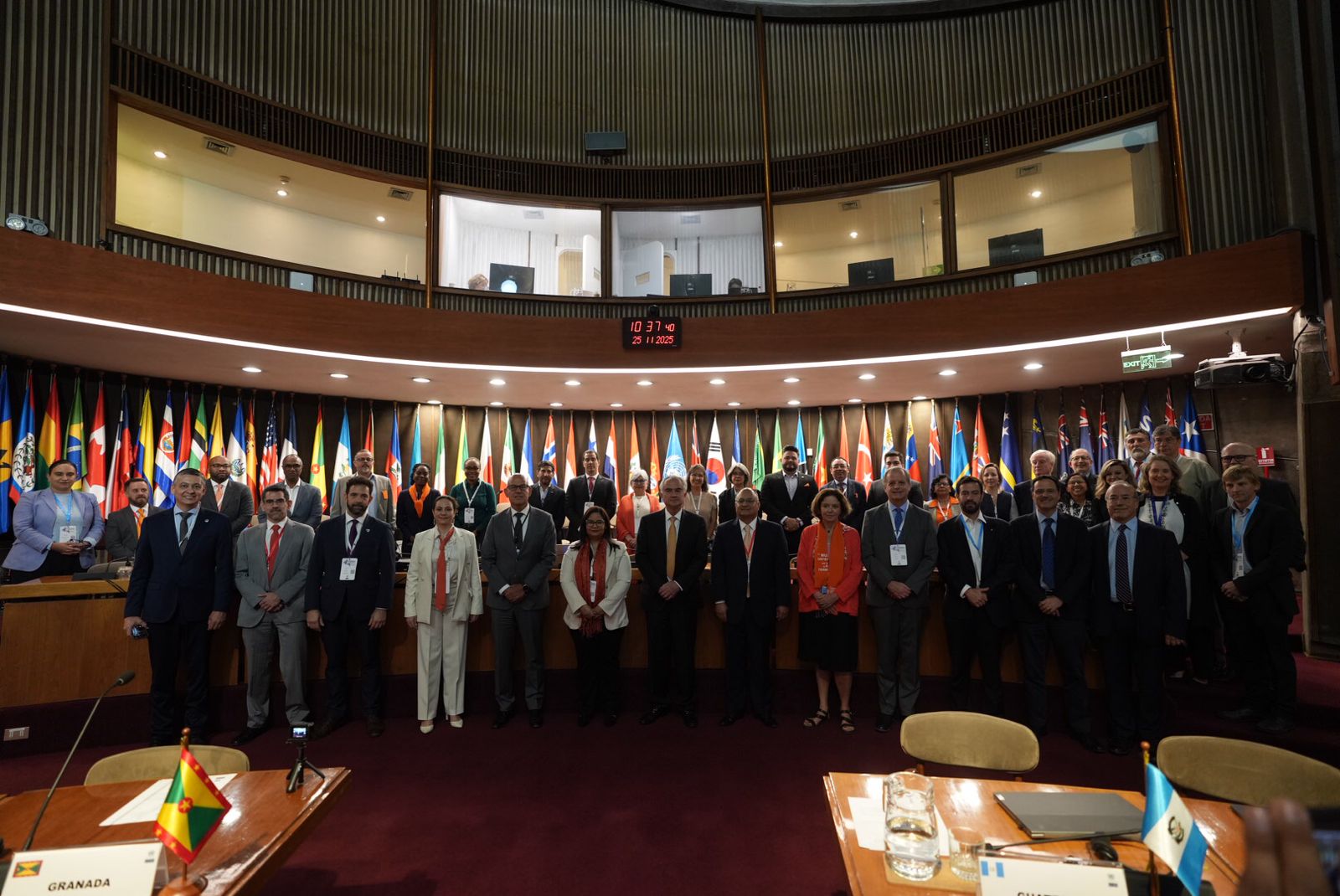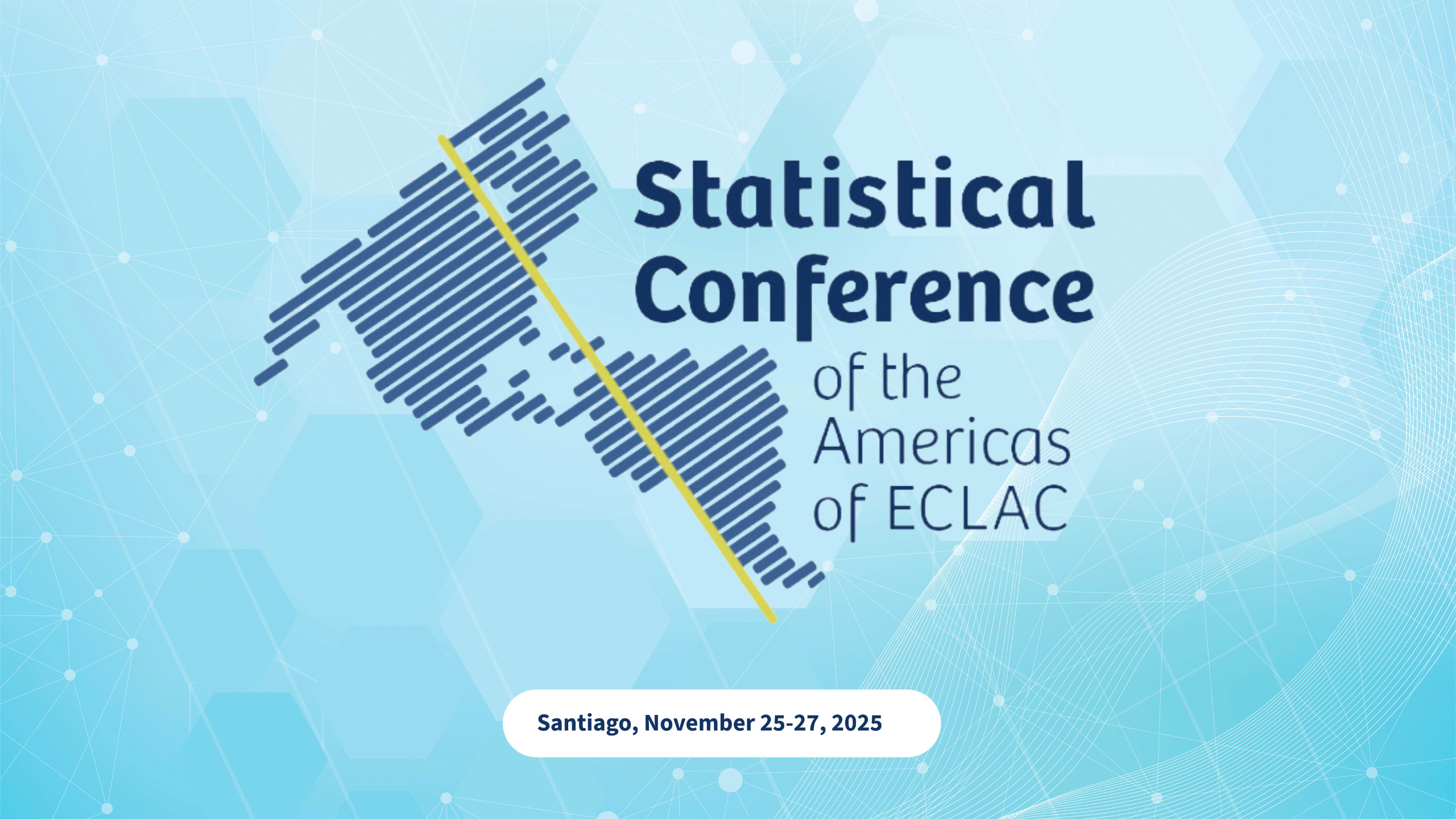Authorities Call for Strengthening Data Governance in National Statistical Systems
Work area(s)
The Thirteenth Meeting of the Statistical Conference of the Americas was inaugurated today at ECLAC’s headquarters in Santiago, Chile.

Authorities and representatives from Latin American and Caribbean countries’ National Statistics Offices called today for strengthening data governance in national statistical systems by promoting regulatory and institutional frameworks that can ensure technical autonomy, transparency, interoperability and sustainability in the production and use of official data, during the inauguration of the Thirteenth Meeting of the Statistical Conference of the Americas, which is taking place through Thursday, November 27 at the main headquarters of the Economic Commission for Latin America and the Caribbean (ECLAC) in Santiago, Chile.
This intergovernmental meeting – which is the main forum for discussing the development of statistics in the region – was inaugurated by José Manuel Salazar-Xirinachs, ECLAC’s Executive Secretary, and Mildred Martínez, General Director of the National Office of Statistics (ONE) of the Dominican Republic, which is the country serving as Chair of the Statistical Conference of the Americas of ECLAC.
In his opening remarks, José Manuel Salazar-Xirinachs stressed that Latin America and the Caribbean faces three development traps that limit its ability to move towards a more productive, inclusive and sustainable model: low capacity for growth and transformation; high inequality and low social mobility and cohesion; and weak institutional capacities and ineffective governance.
“These traps can be overcome, but doing so requires profound transformations to reorient our development model. We have proposed eleven major transformations for the region, which range from driving economic growth leveraged by productive development, increased productivity and job creation, to inequality reduction, progress towards gender equality, the digital transformation and the environmental big push to promote sustainability and address climate change,” he explained.
The UN regional commission’s highest authority indicated that today’s complex and fragmented contexts, marked by rapid technological change, necessitate significant capacity for coordination, management and dialogue, noting that even the best strategies need proper implementation. He recalled that ECLAC is promoting a conceptual framework for analyzing the capacities that States need in order to lead these transformations, known as the TOPP (technical, operational, political and prospective) capabilities.
“These capabilities are reinforced when articulated with effective governance arrangements, with social dialogue mechanisms that increase the legitimacy of policies, and with an understanding of political economy that allows for sequencing and negotiating transformations and making them viable. The production of official statistics is perhaps the clearest example of this need for integrated capabilities. Without quality data, there are no solid diagnoses and no evaluation or accountability,” he affirmed.
In his remarks, ECLAC’s Executive Secretary also referred to the Beyond GDP initiative, established in 2025 by the United Nations Secretary-General and which seeks to examine the limitations of GDP as the main indicator of progress and consider alternatives that would better reflect the multidimensional nature of sustainable development, including the social, environmental and human well-being dimensions.
In that vein, he stated that GDP per capita does not capture the true structural limitations of Latin American and Caribbean development, and he stressed that ECLAC is well-placed to support this agenda, as a regional data integrator, as a promoter of strengthened capacities and as a space for intergovernmental articulation.
“Moving beyond GDP is not just a technical challenge, it is also a deeply political challenge. The way we measure development determines access to cooperation and financing, especially for the small island States of the Caribbean, and ultimately shows what kind of societies we want to build,” he stated.
Finally, José Manuel Salazar-Xirinachs said that in an international context marked by growing budgetary and operational restrictions within the United Nations system, strengthening these intergovernmental technical spaces is more important than ever.
“The Statistical Conference of the Americas is an example of how, even at a time of limitations, cooperation, articulation among countries and collective capacity-building can sustain significant progress,” he concluded.
Meanwhile, Mildred Martínez said that the Dominican Republic is ending its term as Chair of the Conference fully aware of both the progress made and the challenges that remain. She also reaffirmed the country’s firm commitment to the strengthening of statistical systems and the production of high-quality, timely and pertinent data that can underpin public policies capable of transforming people’s lives and fostering the development of the entire region.
At the Thirteenth Meeting of the Statistical Conference of the Americas of ECLAC, the Member States will adopt the Strategic Plan 2026-2035 of the Statistical Conference of the Americas of the Economic Commission for Latin America and the Caribbean, as the regional frame of reference for guiding the strengthening, modernization and cooperation of national statistical systems in Latin America and the Caribbean, with the aim of promoting the production and use of quality, comparable and accessible official statistics for the region’s sustainable development.
In addition, the meeting’s participants will examine the outcomes of the Conference’s Biennial Programme of Regional and International Cooperation Activities 2024-2025 and will present and approve proposals for the creation of Working Groups in the 2026-2027 biennium. They will also elect the Conference’s new Executive Committee for the 2026-2027 period.
Related event

Thirteenth meeting of the Statistical Conference of the Americas of ECLAC
<p>The Thirteenth meeting of the Statistical Conference of the Americas of ECLAC will take place in Santiago, from November 25 to 27, 2025.</p>
Related content

Thirteenth Meeting of the Statistical Conference of the Americas Will Be Held at ECLAC
This intergovernmental gathering will take place at the United Nations regional organization’s main headquarters in Santiago, Chile on November 25-27, 2025.
Contact
Public Information Unit
- prensa@cepal.org
- (56 2) 2210 2040
